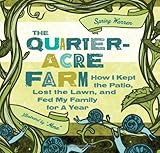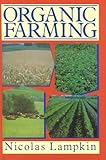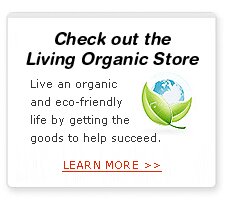Living Organic Online Store
The Meat Crisis: Developing More Sustainable Production and Consumption
Meat and dairy production and consumption are in crisis. Globally 60 billion farm animals are used for food production every year. It is well accepted that methane emissions from cattle and other livestock are major contributors to greenhouse gas levels and to climate change. The Food and Agriculture Organization of the United Nations (FAO) predicts a rough doubling of meat and milk consumption by 2050, with particularly rapid growth occurring in the developing economies of Asia. This could raise the number of farm animals used annually to nearer 120 billion. What will this mean for the health and wellbeing of those animals, of the people who consume ever larger quantities of animal products, and for the health of the planet itself?This powerful and challenging book explores these issues surrounding the global growth in the production and consumption of meat and dairy animals and products, including cultural and health factors, and the implications of the likely intensification of farming for both small-scale producers and for the animals. Several chapters explore the related environmental issues, from resource use of water, cereals and soya, to the impact of livestock production on global warming and issues concerning biodiversity, land use and the impacts of different farming systems on the environment. A final group of chapters addresses ethical and policy implications for the future of food and livestock production and consumption. The overall message is clearly that we must eat less meat to help secure a more sustainable and equitable world.
Related Products
The Quarter-Acre Farm: How I Kept the Patio, Lost the Lawn, and Fed My Family for a Year
When Spring Warren told her husband and two teenage boys that she wanted to grow 75 percent of all the food they consumed for one yearand that she wanted to do it in their yardthey told her she was crazy.She did it anyway.The Quarter-Acre Farm is Warren’s account of decidingdespite all resistanceto take control of her family’s food choices, get her hands dirty, and create a garden in her suburban yard. It’s a story of bugs, worms, rot, and failure; of learning, replanting, harvesting, and eating. The road is long and riddled with mistakes, but by the end of her yearlong experiment, Warren’s sons and husband have become her biggest fansin fact, they’re even eager to help harvest (and eat) the beautiful bounty she brings in.Full of tips and recipes to help anyone interested in growing and preparing at least a small part of their diet at home, The Quarter-Acre Farm is a warm, witty tale about family, food, and the incredible gratification that accompanies self-sufficiency.
Organic Farming, Revised Edition
The current growth of organic farming is being fuelled by market demand. Nicolas Lampkin's book spells out both the principles underlying organic farming and the practical ways in which farmers can respond. He is particularly concerned with the economics of organic farming - a key point for farmers thinking of converting their land. The first part of his book spells out the principles: soil structure, crop nutrition, management of wastes, rotation design, weed management, pest and disease control, livestock husbandry. In the second part he goes into practical details for livestock systems, grassland and fodder crops, arable and horticultural crops, marketing and processing, physical and financial performance, and the conversion process. Some of the evidence on food quality and environmental impact is also reviewed. This is a guide to a way of farming which aims to be in partnership with the natural world rather than dominating it.
Turn Here Sweet Corn: Organic Farming Works
When the hail starts to fall, Atina Diffley doesn’t compare it to golf balls. She’s a farmer. It’s “as big as a B-size potato.” As her bombarded land turns white, she and her husband Martin huddle under a blanket and reminisce: the one-hundred-mile-per-hour winds; the eleven-inch rainfall (“that broccoli turned out gorgeous”); the hail disaster of 1977. The romance of farming washed away a long time ago, but the love? Never. In telling her story of working the land, coaxing good food from the fertile soil, Atina Diffley reminds us of an ultimate truth: we live in relationships—with the earth, plants and animals, families and communities.A memoir of making these essential relationships work in the face of challenges as natural as weather and as unnatural as corporate politics, her book is a firsthand history of getting in at the “ground level” of organic farming. One of the first certified organic produce farms in the Midwest, the Diffleys’ Gardens of Eagan helped to usher in a new kind of green revolution in the heart of America’s farmland, supplying their roadside stand and a growing number of local food co-ops. This is a story of a world transformed—and reclaimed—one square acre at a time.And yet, after surviving punishing storms and the devastating loss of fifth-generation Diffley family land to suburban development, the Diffleys faced the ultimate challenge: the threat of eminent domain for a crude oil pipeline proposed by one of the largest privately owned companies in the world, notorious polluters Koch Industries. As Atina Diffley tells her David-versus-Goliath tale, she gives readers everything from expert instruction in organic farming to an entrepreneur’s manual on how to grow a business to a legal thriller about battling corporate arrogance to a love story about a single mother falling for a good, big-hearted man.






